About Positive Sobriety Institute
In Chicago, Illinois the Positive Sobriety Institute (PSI) provides an approach to treating addiction and mental health that is targeted toward business professionals. They help highly motivated non professionals as well. Through their outpatient treatment options, PSI incorporates traditional and holistic methods of treatment to provide clients the ability to reach and maintain recovery.
Holistic and Evidence-Based Recovery Solutions
PSI believes that addiction is a brain disease and works to treat it accordingly. They offer structured therapies such as Cognitive Behavioral Therapy and Acceptance and Commitment Therapy along with alternative therapies including yoga, meditation and acupuncture.
They also offer medication assisted treatment, which allows you to use approved medication to limit withdrawal symptoms and manage cravings during treatment. MAT can help you stay stable and avoid relapse as you address the underlying causes of addiction.
Their Partial Hospitalization Program is for those who need a lot of support and provides a full day of treatment five days a week. The Intensive Outpatient Program is quite flexible as it operates with either morning or evening sessions which allows you to schedule around your work and family responsibilities.
A Focus on Mental Health and Supportive Care
It’s not unusual to have mental health disorders impact substance use. That’s why PSI offers dual diagnosis treatment that can address concerns such as depression, anxiety, OCD and more. Integrated treatment helps ensure that both disorders are treated, increasing the chance of long term sobriety.
The facility also ensures that families are involved in the treatment process; families can attend workshops and therapy sessions that aim at healing and rebuilding families. Some programs also include continuing care services through which the clients are able to get the necessary support to maintain their sobriety after treatment.
Addiction Treatment Programs
Alcohol Rehab
An alcohol rehab in Illinois helps people gain the skills they need to overcome addiction and maintain long-term sobriety. Whether you need detox, inpatient treatment, or outpatient care, an alcohol program will help you build a new lifestyle based on healthy coping mechanisms, better relationships, and a new way of thinking about life.
Dual Diagnosis
A dual diagnosis is when you have a mental health diagnosis along with a substance use disorder. Getting integrated rehab in Illinois is essential to long-term recovery. Whether you need detox, inpatient treatment, or outpatient care, dual diagnosis program will offer specific support for your mental health needs alongside traditional substance use treatment.
Opioid Addiction
If you choose rehab in Illinois, you’ll receive professional treatment that will help you break free of opioid addiction. During this program, you’ll work with professional counselors to deal with the psychological, emotional, and physical issues that opioid misuse can cause. Over time, you’ll learn how to live without substance use long-term.
Adult Program
Adulting can be hard. When you choose an adult program in Illinois, you get the support you need to overcome addiction and build a successful life. Whether you need detox, inpatient treatment, or outpatient care, an adult program will offer specific support for your emotional, mental, and social needs.
Men's Rehab
Men need unique support, and a men’s rehab in Illinois can help them manage gender-specific concerns while overcoming addiction. Whether you need detox, inpatient treatment, or outpatient care, a men’s program will offer specific support for your emotional, mental, and social needs.
Women's Rehab
When people join a women’s rehab in Illinois, they are able to tackle gender-specific issues while receiving treatment. Whether you need detox, inpatient treatment, or outpatient care, a women’s program will offer specific support for your emotional, mental, and social needs.
Senior Rehab
Insurance Coverage
Private insurance
There are many ways to pay for rehab in Illinois, and one option is to use private insurance. Insurance plans can pay some or all of the costs of rehab. Each plan has different coverage details, and you’ll pay less if you choose a treatment center in the plan’s network. Contact the insurer to find out more information.
Self-pay options
In Illinois, you can pay for rehab yourself, which is known as self-pay. Whether you write a check, have money sent to the center electronically, or use a medical loan, you’ll want to check the fee schedule, which may vary depending on the level of care.
Sliding scale payment assistance
Don’t let the cost of rehab keep you from getting care in Illinois. Instead, find a program that has a sliding scale payment plan. Whether you need detox, inpatient treatment, or outpatient care, you can qualify for a lower cost based on your income and family size.
Levels of Care
- 1
Detox Treatment
For most people, detox in Illinois is the first step in their recovery journey. Most detox programs last around one week, although some are longer. You will generally receive medical treatment for withdrawal symptoms as well as treatment planning for the next stage of rehab.
- 2
Inpatient Rehab
During inpatient treatment in Illinois, each client lives at the facility and is able to focus entirely on recovery. During inpatient treatment, clients are able to work on their recovery through counseling, activities, and holistic treatment like mindfulness, art therapy, and more.
- 3
Outpatient Rehab
Outpatient treatment in Illinois allows clients to live at home or in a sober living facility while attending treatment. Building a new life for yourself takes time, and it’s important to have enough support throughout the process. Outpatient treatment allows you to have more intensive or less intensive help, depending on your needs.
- 4
Aftercare Support
Aftercare in Illinois helps clients maintain long-term recovery by providing essential support after treatment ends. Some aftercare programs will help you connect to community resources and social services in your area, from housing to healthcare to financial assistance.
- 5
Sober Living Homes
Sober living in Illinois gives you a place to live that provides encouragement, support, and accountability. Sober living is a place where you can practice your new life skills and begin to work toward an independent, substance-free life.
- 6
Partial Hospitalization Program
If you need intensive care but want to live independently, consider partial hospitalization programs (PHPs) in Illinois. PHPs provide focused therapy up to 20 hours per week that allows you to understand the roots of substance use, learn healthy coping skills, and create a new life.
- 7
Intervention Services
For some people, intervention in Illinois is the first step in their recovery journey. An intervention professional can offer valuable resources and support and help your loved one find the right program, get there, and begin treatment.
Therapies
Cognitive Behavior Therapy
In Illinois, cognitive behavioral therapy (CBT) is widely used in addiction treatment. Substance use treatment includes detox, inpatient treatment, and outpatient care, and CBT may be a part of each of these stages. The goal is to help clients identify distorted thinking, replace it with rational thinking, and change their responses accordingly.
Dialectical Behavior Therapy
In Illinois, dialectical behavioral therapy (DBT) is widely used in addiction treatment. Substance use treatment includes detox, inpatient treatment, and outpatient care, and DBT may be a part of each of these stages. The goal is to help clients develop the skills they need to solve the problems they face without substance use.
Experiential Therapy
Experiential therapy in Illinois gives you tools to process your emotions, helping you improve and change your life. By participating in art, music, or physical activities like hiking, you can learn to face internal issues without turning to substance use. Instead, you’ll develop healthy coping mechanisms.
Family Therapy
Family therapy in Illinois helps clients overcome substance use by addressing the family conflicts and dysfunction that may contribute to addiction. There are several goals in family therapy. Some sessions may be focused on specific past events, while others address current broken relationships or how good intentions have gone astray. Over time, family relationships can be restored, making recovery easier.
Group Therapy
Group therapy in Illinois helps clients overcome substance use by providing accountability and support. Substance use treatment includes detox, inpatient treatment, and outpatient care, and group therapy may be a part of each of these stages. The goal is to help clients support each other, provide accountability, and relate to each other’s experiences.
Individual Therapy
Attending individual therapy in Illinois is a way to work through your past and develop healthy coping skills, helping you establish long-term recovery. Some of the topics covered in individual therapy include developing healthy coping skills, addressing past events that may have played a part in substance use, and building a support network.
Trauma Therapy
Many people struggling with addiction in Illinois are dealing with unprocessed trauma. Trauma-informed therapy can help you address what happened and develop healthier coping strategies. Both inpatient treatment and outpatient care can include trauma-informed therapy, which helps you create a feeling of safety, access peer support, embrace the validity of your feelings, and create healthy coping skills.
Fitness Therapy
Hypnotherapy
Accreditations
Location
Contact Positive Sobriety Institute
Top Drug Rehab Centers in Illinois
-
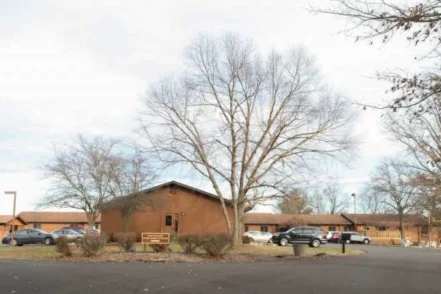 Illinois
IllinoisCenterstone Fellowship House Campus
800 North Main Street Anna, Illinois 62906
-
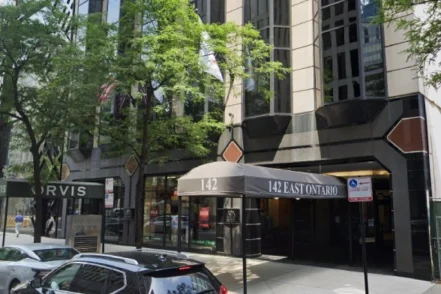 Illinois
IllinoisPositive Sobriety Institute
680 N Lake Shore Dr, Suite 800 Chicago, Illinois 60611
-
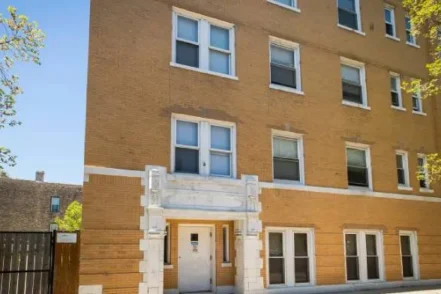 Illinois
IllinoisGateway Foundation Kedzie Recovery Home
1706 North Kedzie Avenue Chicago, Illinois 60647
-
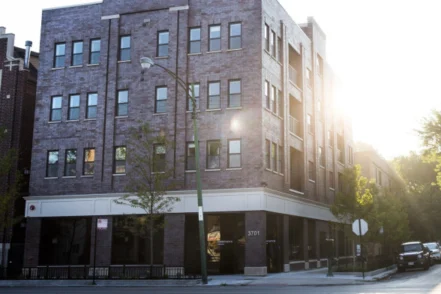 Illinois
IllinoisRosecrance Lakeview
3701 N. Ashland Ave Chicago, Illinois 60613
-
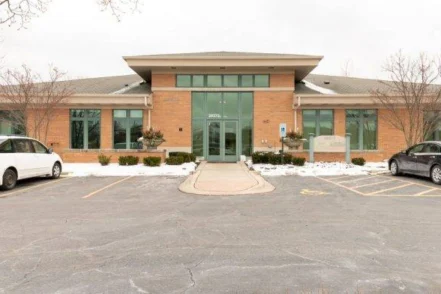 Illinois
IllinoisSymetria Recovery Naperville Warrenville
28373 Davis Parkway, Suite 500 Warrenville, Illinois 60555
-
 Illinois
IllinoisPreferred Family Healthcare Recovery Resources
428 South 36th Street Quincy, Illinois 62301
-
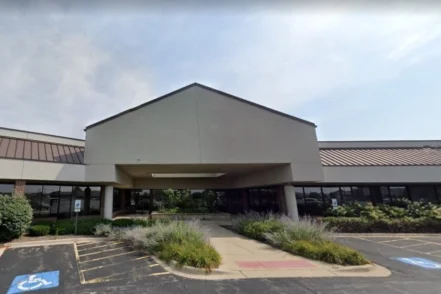 Illinois
IllinoisMathers Recovery Elgin
420 Airport Rd, Suite C Elgin, Illinois 60123
-
 Illinois
IllinoisFootprints To Recovery
411 West River Road, Suite 309 Elgin, Illinois 60123
-
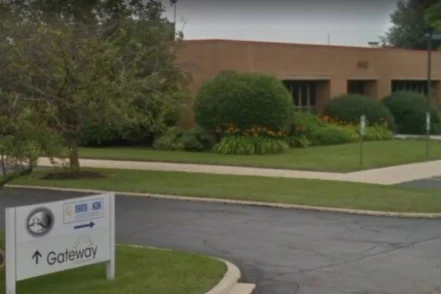 Illinois
IllinoisGateway Foundation Mercy Lane
400 Mercy Lane Aurora, Illinois 60506
-
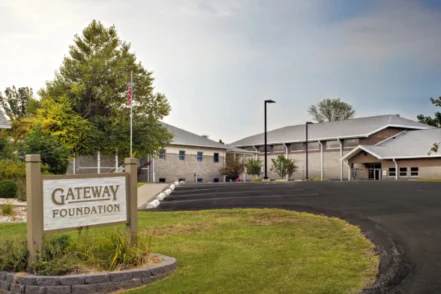 Illinois
IllinoisGateway Foundation Carbondale
1080 East Park Street Carbondale, Illinois 62901
-
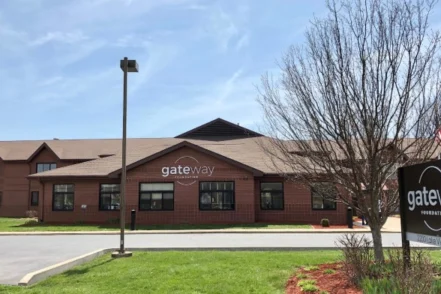 Illinois
IllinoisGateway Foundation
2200 Lake Victoria Drive Springfield, Illinois 62703
-
 Illinois
IllinoisGateway Foundation Caseyville
600 West Lincoln Avenue Caseyville, Illinois 62232
-
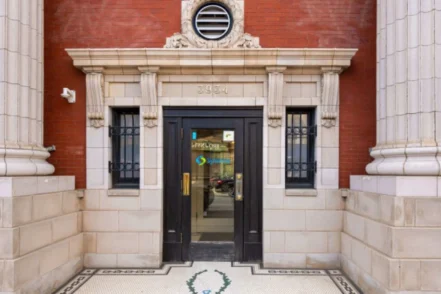 Illinois
IllinoisSymetria Recovery Lakeview
3934 North Lincoln Avenue Chicago, Illinois 60613
-
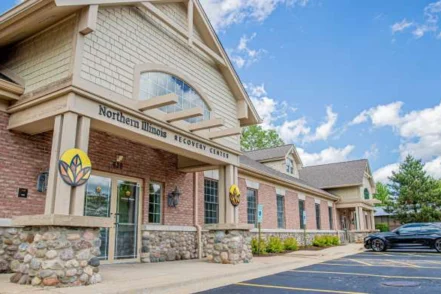 Illinois
IllinoisNorthern Illinois Recovery Center
620 N State Rte 31 Crystal Lake, Illinois 60012
-
 Illinois
IllinoisHazelden Betty Ford Foundation
867 North Dearborn Street Chicago, Illinois 60610
Other Popular Illinois Cities
Browse by Illinois cities
- Cairo
- Calumet City
- Canton
- Carbondale
- Carlinville
- Carlyle
- Carmi
- Carol Stream
- Carpentersville
- Carrollton
- Carterville
- Carthage
- Cary
- Caseyville
- Centralia
- Champaign
- Charleston
- Chester
- Chicago
- Chicago Heights
- Chicago Ridge
- Chillicothe
- Cicero
- Cissna Park
- Clifton
- Clinton
- Collinsville
- Crest Hill
- Crete
- Crystal Lake


